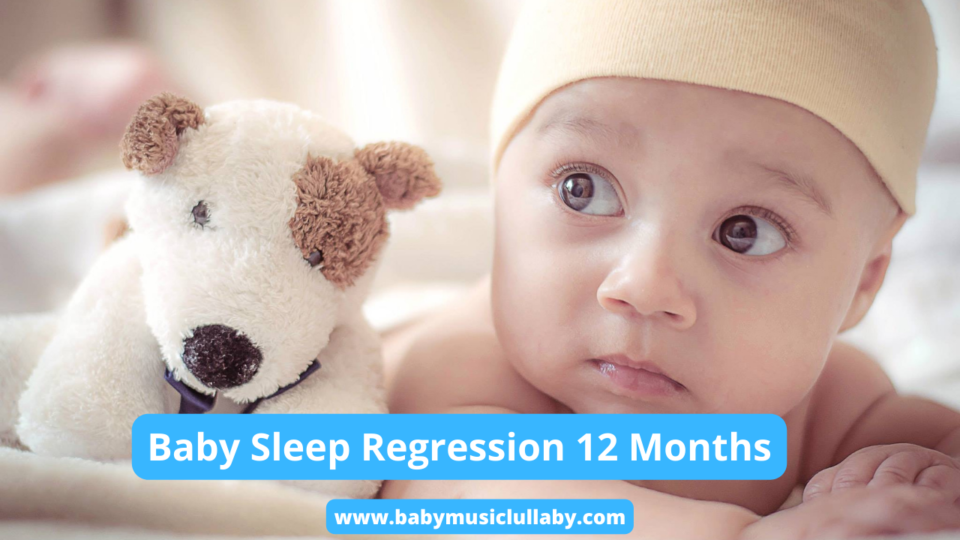Contents
Introduction
Sleep regression is a term used to describe a period of disrupted sleep that babies often go through during their first year. At around 12 months of age, some babies may experience a sleep regression phase that can be challenging for both the baby and parents. Understanding the causes and implementing effective strategies can help navigate through this phase more smoothly. In this article, we will explore baby sleep regression at 12 months, signs to look out for, and practical tips for coping with it.
What is Baby Sleep Regression at 12 Months?
Baby sleep regression at 12 months refers to a temporary disruption in a baby’s sleep patterns that typically occurs around this age. During this phase, previously good sleepers may start experiencing difficulties with falling asleep, staying asleep, or both. It can be attributed to factors such as developmental milestones, separation anxiety, or changes in sleep needs.
Signs of Sleep Regression at 12 Months
Recognizing the signs of sleep regression at 12 months can help parents understand what their baby is going through. Here are some common signs to watch for:
- Increased night waking: Your baby may start waking up more frequently during the night, requiring additional comfort or attention to fall back asleep.
- Resistance to sleep: Your baby may display resistance to naptime or bedtime, showing signs of restlessness or fussiness when it’s time to sleep.
- Changes in sleep duration: Sleep regression at 12 months can lead to variations in sleep duration, with naps becoming shorter or nighttime sleep becoming more fragmented.
- Irritability and mood changes: Your baby may appear more irritable or moody during awake periods, which can be attributed to disrupted sleep patterns.
- Increased separation anxiety: Separation anxiety may become more pronounced during this phase, causing your baby to seek more comfort and reassurance.
Coping Strategies for Sleep Regression at 12 Months
While sleep regression can be challenging, there are strategies that parents can employ to cope with it effectively:
1. Maintain a Consistent Sleep Routine
Establishing and maintaining a consistent sleep routine can provide a sense of security and predictability for your baby. A bedtime routine that includes calming activities such as a bath, reading a book, or gentle cuddling can help signal to your baby that it’s time to wind down and prepare for sleep.
2. Address Separation Anxiety
During sleep regression, separation anxiety may become more pronounced. Offer extra comfort and reassurance to your baby before sleep times, providing cuddles, soothing words, or a favorite blanket or toy. This can help alleviate their anxiety and promote a more relaxed state for sleep.
3. Create a Sleep-Inducing Environment
Ensure that your baby’s sleep environment is conducive to quality sleep. Keep the room dark, quiet, and at a comfortable temperature. Consider using white noise or a gentle lullaby to create a soothing atmosphere that can aid in relaxation and promote better sleep.
4. Encourage Self-Soothing Skills
As your baby grows, encouraging self-soothing skills can be beneficial. Allow them to practice falling asleep independently by placing them in the crib while drowsy but still awake. This can help them learn to soothe themselves back to sleep when they wake up during the night.
5. Seek Support and Help
Remember to seek support from your partner, family, or friends during this challenging phase. Sharing the responsibilities of nighttime awakenings and seeking help when needed can provide you with the necessary rest and support to navigate through sleep regression.
FAQs About Sleep Regression at 12 Months
FAQ 1: How long does sleep regression at 12 months last?
The duration of sleep regression at 12 months can vary for each baby. It typically lasts for a few weeks to a couple of months. However, with consistent sleep routines and implementing effective coping strategies, sleep patterns usually improve over time.
FAQ 2: Can teething affect sleep regression at 12 months?
Teething can coincide with sleep regression at 12 months, which can contribute to disrupted sleep patterns. If your baby is experiencing discomfort due to teething, providing appropriate pain relief measures, such as teething toys or medication as advised by your pediatrician, may help alleviate their discomfort and improve sleep.
FAQ 3: Is it normal for sleep regression to occur more than once?
Yes, it is not uncommon for babies to experience sleep regression more than once during their first year. Various developmental milestones and changes in sleep needs can trigger periods of disrupted sleep. However, with consistent routines and effective strategies, you can help your baby navigate through these phases.

Conclusion
Sleep regression at 12 months can be a challenging phase for both babies and parents. By recognizing the signs, implementing effective coping strategies, and maintaining a consistent sleep routine, you can navigate through this temporary disruption with greater ease. Remember to be patient and provide your baby with the comfort and support they need during this developmental milestone. With time, their sleep patterns will gradually improve.

 Subscribe to Get Soothing Lullabies to Help Your Baby to Sleep
Subscribe to Get Soothing Lullabies to Help Your Baby to Sleep
1 comment
[…] Baby Sleep Regression 12 Months […]